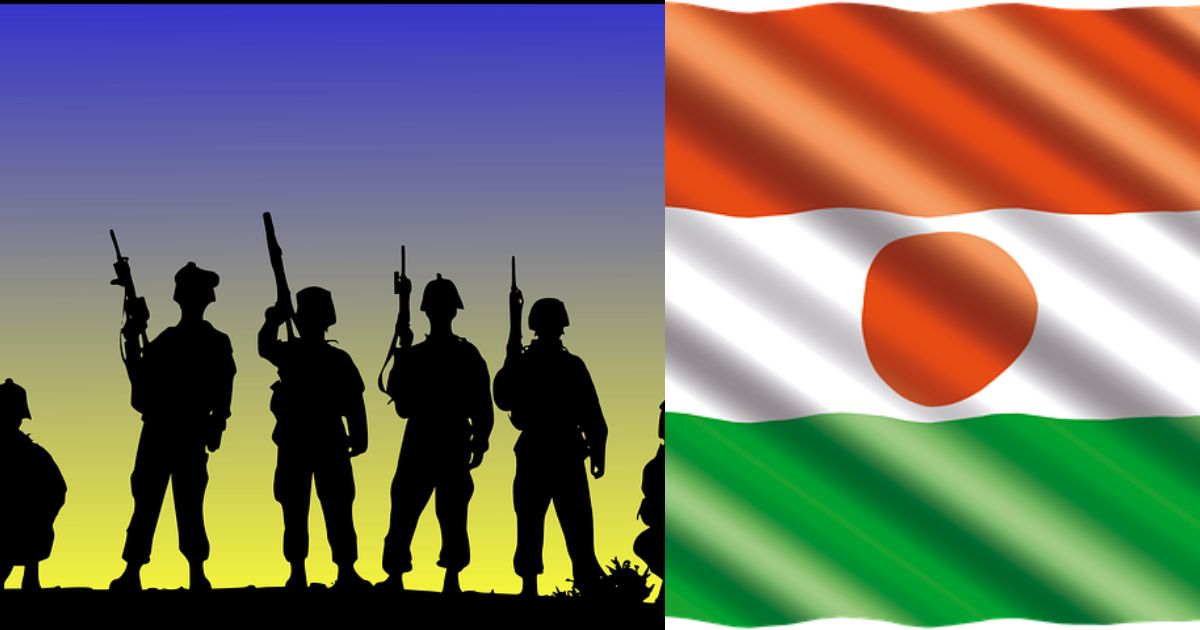“Regional and continental bodies, home and abroad, must pressure Colonel Amadou Adramane and his boys to return to their barracks as soon as possible. France must come into the picture quickly, urging the military gang to leave, convincing them that democracy is sweet wine to the senses.”
Yesterday’s Military coup in Niger once again brought to the fore the fragility of democracy in West Africa and other parts of the continent. Presidential palace guards seized President Mohamed Bazoum while the army deployed around the presidential palace, several local and international media houses reported yesterday. But what happened in Niamey, the country’s capital, is not altogether strange to observers of Niger’s culture and political odyssey. The signs of an imminent military takeover were evident as far back as around March 2021.
In “Why Tolerating Military Coup in West Africa is Dangerous,” a 2021 article for The African Courier, I hinted about a coup taking place in Niger. Here is how I closed my piece for the Germany-based publication: “Unless regional powers like Nigeria and Ghana act fast to put an end to the current strange attraction that is military rule in West Africa, more coups and counter coups may just be around the corner in the sub-region. Burkina Faso, Niger, and Chad, even Nigeria are not looking too good politically. And there are no indications that they are vaccinated against the newest political infection ravaging the region”.
It is easy to adduce one or two reasons why that needless coup took place. Niger hasn’t shown a strong commitment toward participatory democracy in the past. It is a country overshadowed by tribal differences, religious extremism, and weak public institutions, among other developmental distractions. The country’s citizens roam neighboring borders endlessly, eager for a way into countries they believe would guarantee economic safety and political peace. No nation with many citizens fleeing its territory in seasonal exoduses can lay a valid claim to political, economic, or social stability. But there could be more foregrounding to the coup d’état.
Some comments on social media have pointed accusing fingers at France and Russia’s Mercenary group, Wagner, over what went down in Niamey. But nothing is crystal clear yet. And no one should accuse France or any foreign authority without valid proof. The problems in Niger lie closer to home than they reside abroad. Charity begins at home. Observers must look into all rooms in Niger’s and Africa’s political and social structures to grasp why the continent is prone to violent political transitions now and again.
The coup plotters were encouraged by the ineffectual exertions of the Economic Community of West African States (ECOWAS), the African Union (AU), and other world bodies to the earlier rebellions in Mali and Guinea, led by Col. Assimi Goita and Col. Mamady Doumbouya respectively. Not surprisingly, Niger’s coup is also headlined by a Colonel! The overthrows in Mali and Guinea had 383 days separating them, as I pointed out in my September 22 article of 2021. Had ECOWAS and AU achieved much in Mali and Guinea, the jackboots in Niger wouldn’t have abandoned their constitutional roles of protecting their country from external aggressors, guarding the President, and ensuring peace in their territory and beyond. The coup has occurred, and there is little room to consider what would have been. What is the way forward now that Niger has joined countries in the subregion that are under the jackboot of militarism?
The journey forward should not be a blind one, neither should it be that of a drowning man grabbing at weak straws. The coup leaders, led by Colonel Major Amadou Adramane, must ensure the safety of former President Mohamed Bazoum and other members of his cabinet. This moment of political and economic instability is not a time for bloodletting; instead, the moment calls for inclusive policies and a quick return to the urgent business of running the country without violence. But the military boys must not luxuriate in presidential palaces for long. They do not belong there. The nation needs them, but not within the corridors of power where they have no enemy to fight. They would do much better battling Islamic terrorists and insurgents who roam the Sahel.
Regional and continental bodies, home and abroad, must pressure Colonel Amadou Adramane and his boys to return to their barracks as soon as possible. France must come into the picture quickly, urging the military gang to leave, convincing them that democracy is sweet wine to the senses. Failure to show Colonel Adramane and his boys a quick route to where they came from may mean that more coups will happen in West Africa and elsewhere on a continent that is forever struggling to know the true meanings of democracy and the values inherent in its operational codes. This rebellion in Niger is one coup too many!









